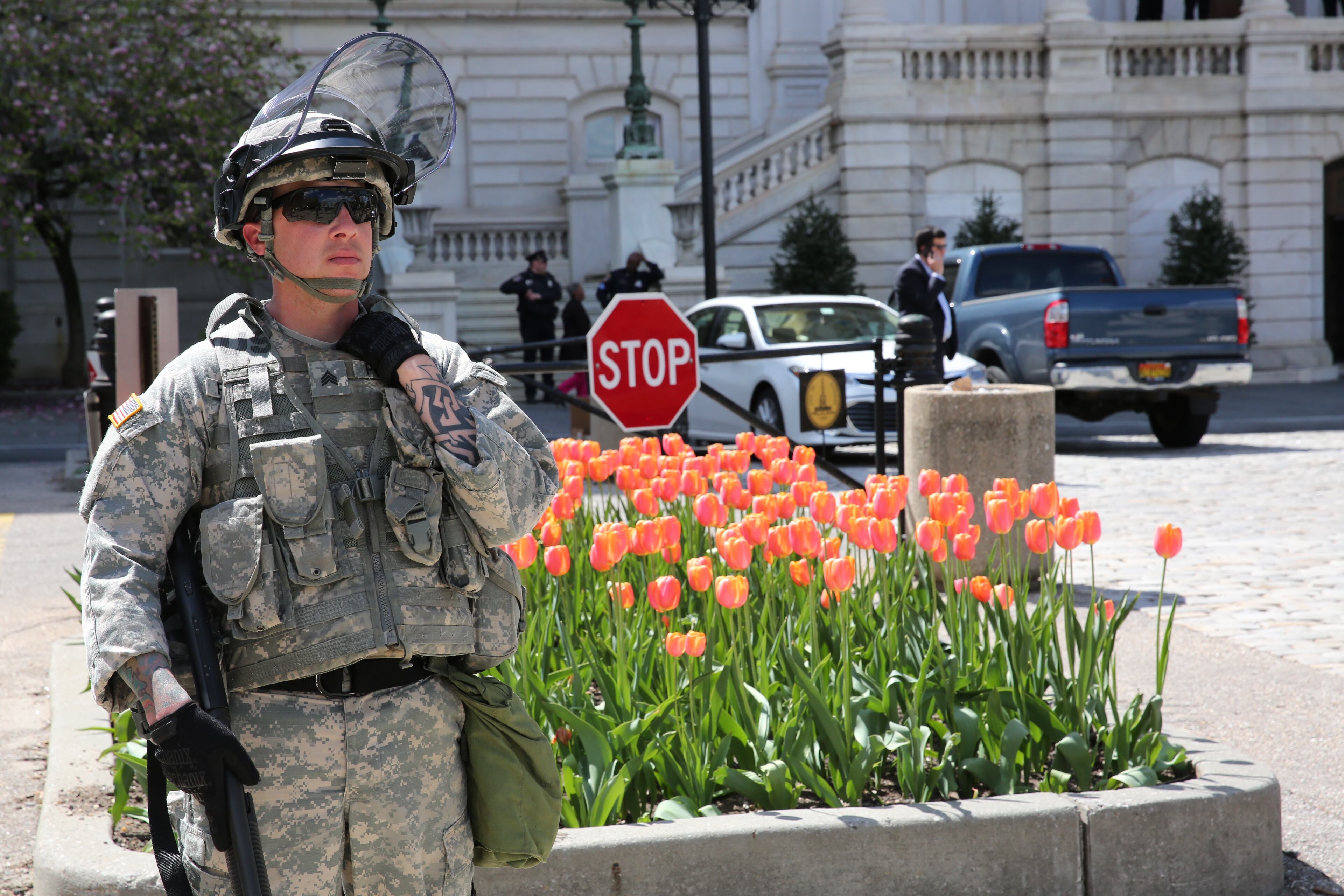The Army's strict tattoo policy may have gone away, but the memos documenting your tattoos have not.
The Army in April released an update to Army Regulation 670-1 that effectively reversed a year-old tattoo policy that limited the number and size of tattoos soldiers could have below their elbows and knees.
The more restrictive policy was highly unpopular among soldiers, and the recent change, which essentially allows soldiers to have ink on their arms and legs as long as it isn't visible in the Army Service Uniform, was celebrated across the ranks.
Soldiers are still not allowed to have tattoos on their neck, head, face, wrists or hands. The exception is a ring tattoo on each hand. Also banned are tattoos that are sexist, racist, extremist and derogatory.

A tattoo of a grenade decorates the arm of an infantry soldier in Afghanistan during Operation Enduring Freedom. Many restrictions on soldiers' tattoos have been lifted.
Photo Credit: David Goldman, Associated Press
The new policy also eliminated the need for commanders to annually check and document their soldiers' tattoos. These tattoo validation memos were completed last year, when the previous version of AR 670-1 was in effect.
"There is no longer a need or requirement to grandfather tattoos," said Paul Prince, an Army spokesman.
The Army has no intention, however, to delete the existing documentation from the interactive Personnel Electronic Records Management System, or iPERMS, the collecting house for all of an individual soldier's records. At least not until you leave the Army. It's Army policy to never delete such documents from the system, Prince said.
That means all documentation for "previously approved exceptions to policy and those who still need their grandfathering memos, for example soldiers with grandfathered neck or hand tattoos, must remain on file," Prince explained.
If you're concerned, Prince stressed those records will not be used against a soldier in any way.
"These documents are not seen by any selection board and have no bearing on personnel actions," he said.
The documents are meant to protect soldiers, said Lt. Col. Justin Platt, an Army spokesman.
"As soldiers PCS to new assignments, these records provide proof of previously approved exceptions to policy and document grandfathered neck or hand tattoos," Platt said.
The records are kept in a "temporary folder" that is never seen by a promotion board, and they are deleted when a soldier separates from the Army, he said.
This means when the E-7 and nominative command sergeants major and sergeants major boards meet in June, they will not have access to tattoo-related information, nor will they use it for or against a soldier.
However, a soldier's overall appearance is part of what promotion boards will consider. During the last E-8 board, the results of which were released May 7, board members were instructed to "advance leaders who project military and professional bearing, holistic fitness, confidence and resilience. The impression a leader makes on others contributes to their success in leading them. The impression is the sum of the leader's outward appearance, demeanor, actions and words."
Commanders will continue to perform "annual tattoo checks for new tattoos above the neckline, on the wrists or hands, or tattoos considered extremist, indecent, sexist or racist," Prince said.
The old tattoo policy limited to four the number of tattoos soldiers could have below the elbow and knee. It also limited the size of the tattoos to the wearer's hand.
The regulation also initially barred soldiers who ran afoul of the rules from requesting a commission, sparking anger among many soldiers. A September update grandfathered enlisted seeking a commission or appointment, as long as they have their commander's endorsement.

A member of the Army National Guard stands guard outside city hall in Baltimore on April 28. The Army's tattoo policy shouldn't be one that deters good people from serving, the Army's top enlisted soldier says.
Photo Credit: Jennifer Milbrett/Staff
The new tattoo policy allows the Army to balance recruiting and retention needs. Sergeant Major of the Army Dan Dailey has said he did not want tattoo restrictions to drive good soldiers out, or prevent solid recruits from joining the force.
"I don't think there was any wrong in the past, I was part of the previous decision, too," Dailey has said. "We had gotten too far out of the regulation, but I think what we're doing is appropriate with regards to maintaining the trust and confidence of the American people and maintaining discipline and standards in our great Army."
Michelle Tan is the editor of Army Times and Air Force Times. She has covered the military for Military Times since 2005, and has embedded with U.S. troops in Iraq, Afghanistan, Kuwait, Haiti, Gabon and the Horn of Africa.





